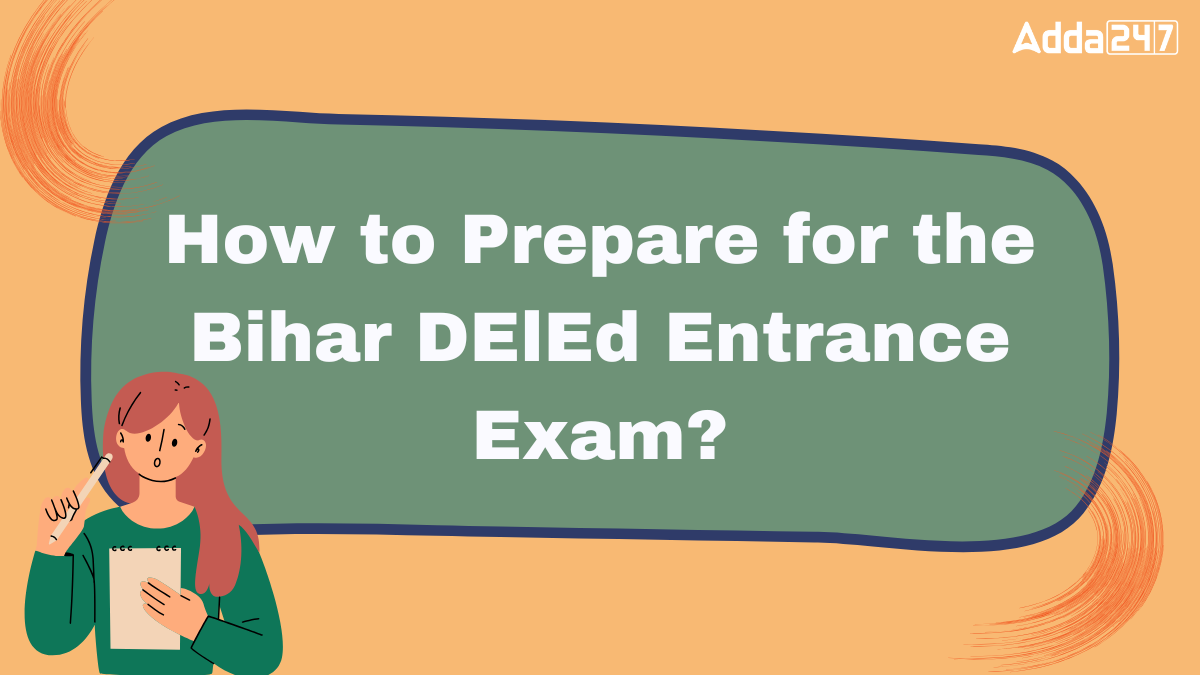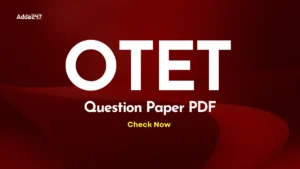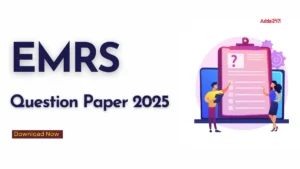Table of Contents
The Bihar School Examination Board (BSEB) is all set to conduct the Bihar DElEd Entrance Exam in February 2025, hence must check out the Bihar DElEd Preparation Tips that are effective. This Joint Entrance Examination is a golden opportunity for candidates aiming to enrol in the prestigious 2-year Diploma in Elementary Education (D.El.Ed) program. With the application window nearing its closure, eligible candidates are advised to act promptly and complete their registrations without delay. As the exam date approaches, many aspirants are seeking answers to how to prepare for the Bihar DElEd Entrance Exam, and this article is being written to provide you with a clear roadmap for your exam preparation.
How to Prepare for the Bihar DElEd Entrance Exam?
As the Bihar DElEd Entrance Exam date is announced, each passing day urges candidates to boost their preparation. A strong exam preparation begins with a thorough understanding of the syllabus and analyzing the exam pattern in detail. This helps candidates gauge the vastness of the topics they may encounter during the exam, understand the distribution of marks, and identify high-weightage areas. By focusing more on important sections and aligning their study plan with the exam’s structure, candidates can effectively allocate time to each subject, ensuring a comprehensive and confident attempt.
Bihar DElEd Entrance Exam Syllabus
The Bihar DElEd Entrance Exam syllabus is designed to test candidates’ knowledge and aptitude across multiple subjects essential for the 2-year Diploma in Elementary Education (D.El.Ed) program. The exam evaluates areas such as language skills, reasoning ability, subject-specific knowledge, and general awareness. A detailed understanding of the syllabus is crucial to creating an effective preparation strategy. Below are the six subjects covered in the syllabus, along with their respective content:
- General Hindi/Urdu: This section tests candidates’ command over the language, focusing on grammar, vocabulary, and comprehension. Topics include sentence correction, word formation, synonyms, antonyms, idiomatic expressions, and reading comprehension. Candidates must also understand grammatical rules such as Sandhi and Samas, as well as develop writing skills through sentence completion and rearrangement exercises.
- Mathematics: The Mathematics section evaluates a candidate’s numerical ability and problem-solving skills. It covers arithmetic operations, percentages, profit and loss, and ratio and proportion. Algebra topics include simple equations and polynomials, while geometry focuses on shapes, angles, perimeter, area, and volume. Basic statistics concepts, such as interpreting data from bar graphs, pie charts, and tables, are also included.
- Science: The Science section is aimed at assessing the candidates’ understanding of scientific principles and their practical applications. Topics include the laws of motion, light, sound, and energy from physics, along with chemical reactions and the states of matter from chemistry. Biology covers human body systems, ecological concepts, and plant and animal life. Everyday science applications are also a key focus area.
- Social Studies: Social Studies examines the candidates’ knowledge of history, geography, and civics, emphasizing their relevance in education. History topics include the Indian freedom struggle, ancient and medieval history, and major historical events. Geography covers India’s physical features, climate, and natural resources. Civics includes the Indian Constitution, fundamental rights and duties, and the functioning of a democratic system.
- General English: This section assesses the candidates’ proficiency in the English language. It includes grammar topics such as tenses, prepositions, articles, and sentence correction. Vocabulary building is crucial, with a focus on synonyms, antonyms, and idiomatic expressions. Reading comprehension, paragraph arrangement, and writing skills like sentence formation and error detection are also tested.
- Logical and Analytical Reasoning: Logical and Analytical Reasoning focuses on assessing candidates’ critical thinking and problem-solving abilities. Topics include logical patterns, coding-decoding, sequences, and syllogisms. Analytical reasoning involves solving puzzles, interpreting data, and identifying analogies. Additionally, non-verbal reasoning covers visual sequences and pattern recognition.
Bihar DElEd Exam Pattern
The Bihar DElEd Entrance Exam consists of 120 multiple-choice questions, each carrying one mark, making the total marks 120. The exam is designed to assess candidates’ aptitude across various sections, including General Hindi/Urdu, Mathematics, Science, Social Studies, General English, and Logical & Analytical Reasoning. Understanding the exam pattern is crucial for time management and strategic preparation.
| Bihar DElEd Exam Pattern | ||
| Subject | Total Questions | Total Marks |
| General Hindi/Urdu | 25 | 25 |
| Mathematics | 25 | 25 |
| Science | 20 | 20 |
| Social Studies | 20 | 20 |
| General English | 20 | 20 |
| Logical & Analytical reasoning | 10 | 10 |
| Total | 120 | 120 |
Bihar DElEd Entrance Exam Preparation Strategies
Preparing for the Bihar DElEd Entrance Exam requires a clear plan and a focused approach. Candidates should aim to cover the syllabus systematically, prioritize high-weightage topics, and practice regularly to enhance speed and accuracy. With the right preparation strategies, aspirants can build confidence and improve their chances of success in this competitive exam.
- Understand the syllabus and exam pattern: Start by thoroughly analyzing the syllabus and exam pattern. Identify important topics, understand the weightage of each section, and plan your preparation accordingly.
- Create a Study Schedule: Design a realistic study plan covering all syllabus sections. Allocate dedicated time to weaker areas while maintaining regular revision for stronger subjects.
- Practice with Mock Tests: Attempt mock tests and previous year papers to familiarize yourself with the exam pattern, improve time management, and identify areas of improvement.
- Focus on High-Scoring Topics: Prioritize topics that carry more weight in the exam, such as Child Development and Pedagogy or Mathematics, to maximize your overall score.
- Revise Regularly: Set aside time for regular revision of key concepts, formulas, and important notes. Consistent revision ensures better retention and boosts confidence before the exam.




 Odisha OTET Question Paper 2025, Direct ...
Odisha OTET Question Paper 2025, Direct ...
 MPESB Exam Calendar 2026 Out, Check Exam...
MPESB Exam Calendar 2026 Out, Check Exam...
 EMRS Question Paper 2025 Released, Downl...
EMRS Question Paper 2025 Released, Downl...












